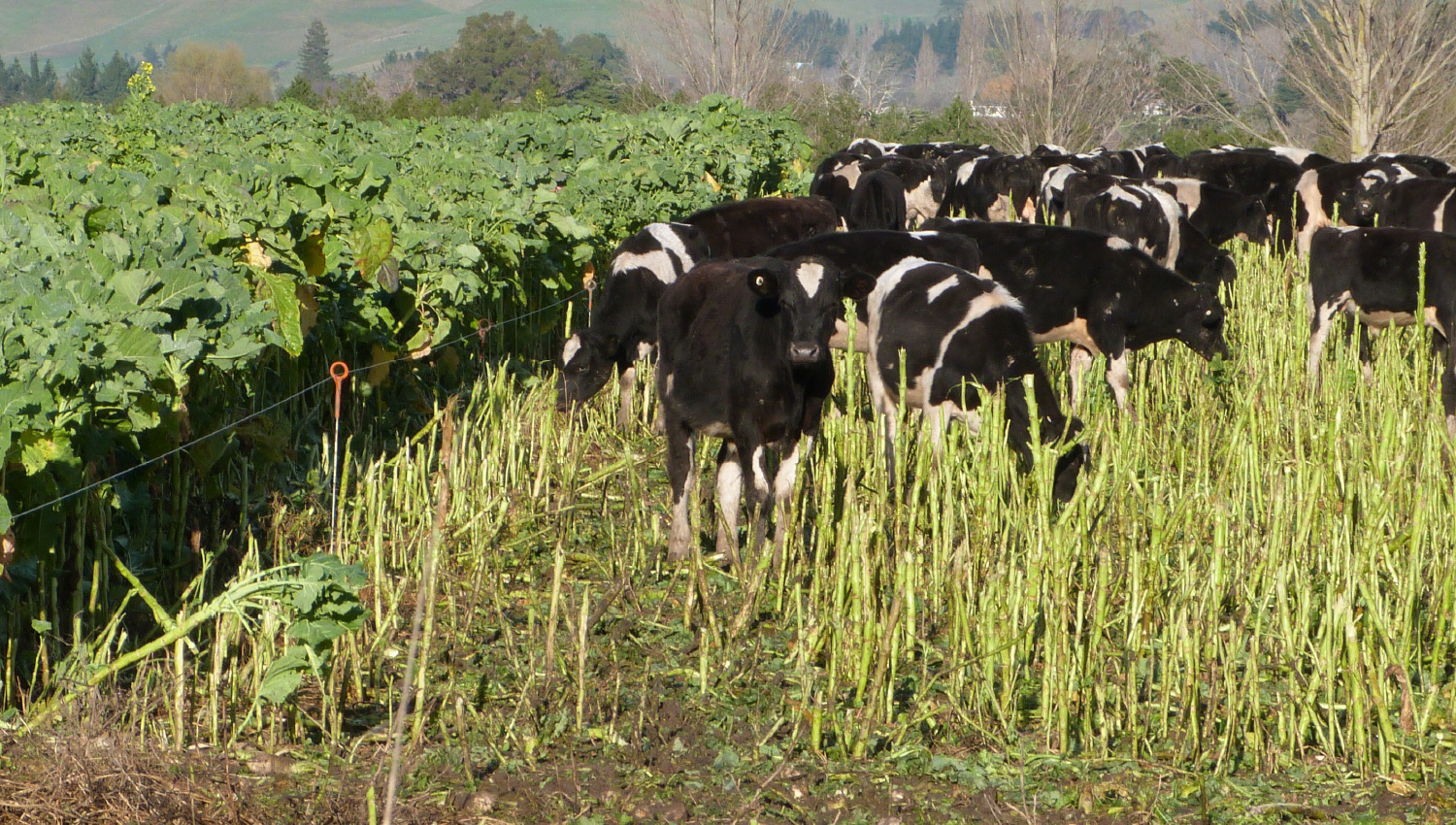If you need to practice intensive winter grazing (IWG), it’s important to plan ahead, ensure your approach meets the national legal requirements and follow the relevant rules for our region.
Intensive winter grazing refers to the grazing of annual forage crops between 1 May and 30 September of the same year and is subject to restrictions under the National Environmental Standards for Freshwater (NES-F).
The practice of intensive winter grazing, particularly in wet conditions, can lead to significant soil damage, which can result in large amounts of sediment, faecal pathogens and nutrients being discharged into watercourses from runoff during heavy rainfall.
The risk of soil damage and contaminant discharge increases as the slope of the land increases, and where there is increased connectivity to nearby surface water.
Have these requirements changed?
Changes to the NES-F took effect on 25 October 2024. They repealed the permitted and restricted discretionary activity regulations for intensive winter grazing in the NES-F, replacing them with standalone regulations on riparian setback (planted river margins) and critical source areas (areas like gullies and swales that can accumulate and convey water and contaminants to waterways).
What requirements do I need to follow?
- Livestock must be kept at least 5m away from any from the bed of any river, lake, wetland or drain, regardless of whether there is water in it at the time.
- Critical source areas within the area used for IWG must be maintained in vegetation and must not be cultivated. Forage crops must not be harvested and the land must not be grazed.
IWG is only one of many regulated activities that may occur on farm in this region. Waikato Regional Council will continue to take a risk-based approach to its compliance activities, focusing on those farming businesses whose poor practice is contributing to adverse environmental effects.
Where can I find out more about best practice?
We encourage farmers who carry out intensive winter grazing as an existing part of their business to follow best practice by referring to this MPI intensive winter grazing module.
The Ministry for the Environment has also produced the following technical guidance:

